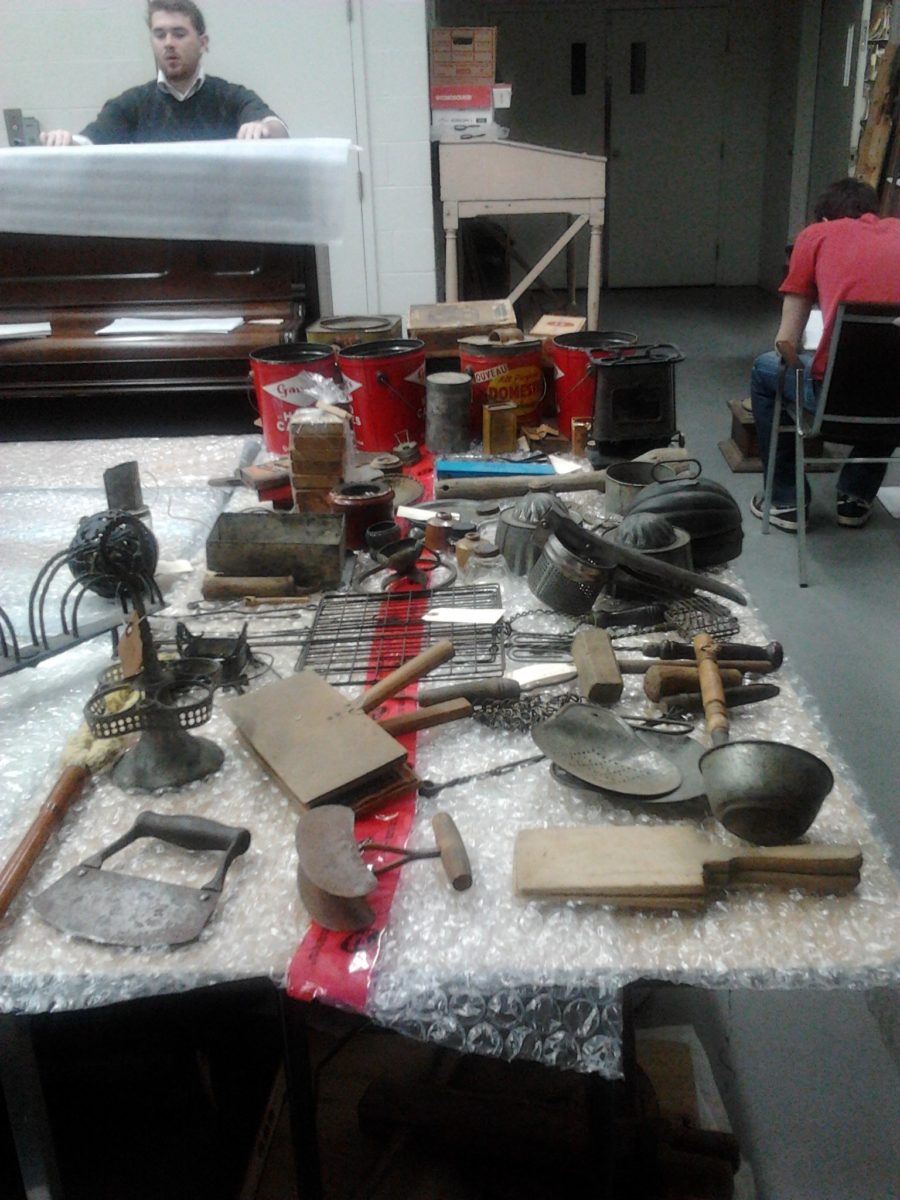
Since humans achieved literacy, history has been recorded, but not necessarily the ordinary or the mundane. St. Thomas history professor Brad Cross’ research seminar in material history examines everyday objects people didn’t write much about and gives readers a better idea of what life was like during a certain time period.
The students in the seminar class are examining objects donated to Kings Landing by descendants of Reverend Frederick Dibblee. Dibblee was an Anglican minister from Connecticut who moved to Woodstock after the Patriots destroyed his home. The Dibblee Collection contains hundreds of items that were kept in the family from approximately 1780 to 1930.
Fourth year history honours student Cindy Kimove said St. Thomas is the only school in Canada that’s giving undergraduate students the opportunity to study material culture.
“Being able to actually touch the objects and feel them and smell them and interact with them adds a lot to the study of the objects. It’s easier to write about something and to delve into it when you can actually touch it instead of just looking at it through museum glass.”
The students are responsible for picking out objects that appeal to them, making observations and inferences about the items and cross referencing them with the museum’s knowledge base. Genealogy will also determine exactly who owned certain items.
Last week, Kimove found an old top hat inside a hat box.
“I’m guessing the hat is from around the early 1800s. It’s in really good shape. So I started by studying the actual hat, the box and making note of where there was wear and tear on the box and how big the hat is and how big the head of the person would have been,” said Kimove. “You can ask a million questions about culture, society and wealth and all sorts of things about one object.”
Cross said the class is “not a predetermined path.”
“We don’t know what the themes are yet. They will emerge from the objects. This is pure research. I don’t know what the end product will be.”
They do know, however, that Kings Landing will eventually use these objects in an exhibit. As the students did the research, they will have a say in what and how objects are displayed and will be writing some text to guide visitors.
Cross said how the exhibit is set up is extremely important.
“In the world of public history, exhibits are equivalent to written documents.”
The seminar, only offered once every three years, is an example of Cross’ commitment to providing a hands-on experience for his students.
Kimove didn’t ever think she would be doing hands-on studies at a liberal arts school.
“Our school is such a small school and we’re not really affiliated with any major museums or anything. So Brad Cross having that connection to King’s Landing and knowing the curator there is such a big deal for us,” she said. “We’re granted access for something that we wouldn’t normally get to do, especially at an undergrad level. Even Master’s students who are studying history have a hard time getting that far into the background of the museums. Being able to touch objects and study them for the first time is pretty huge for us.”
